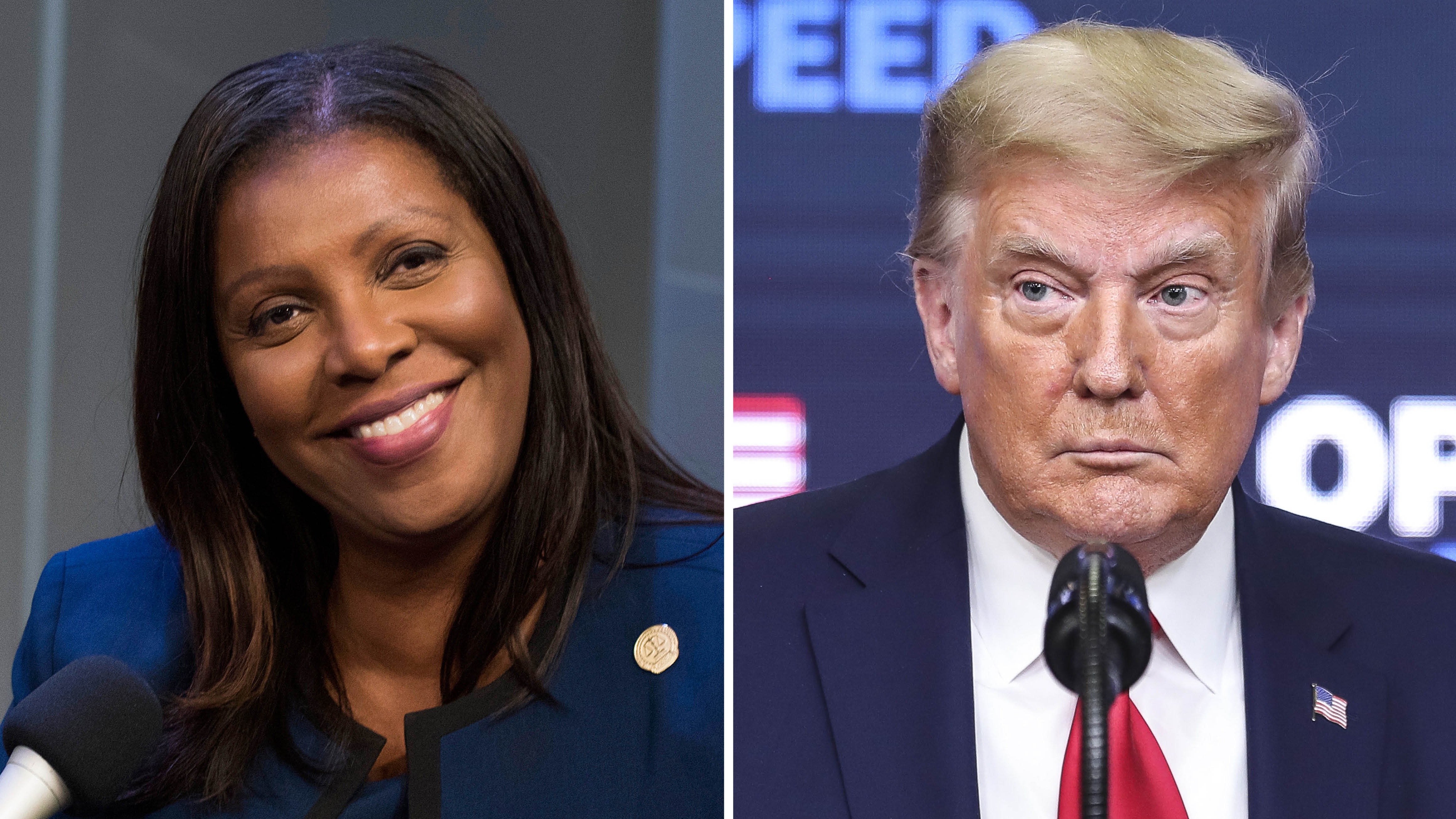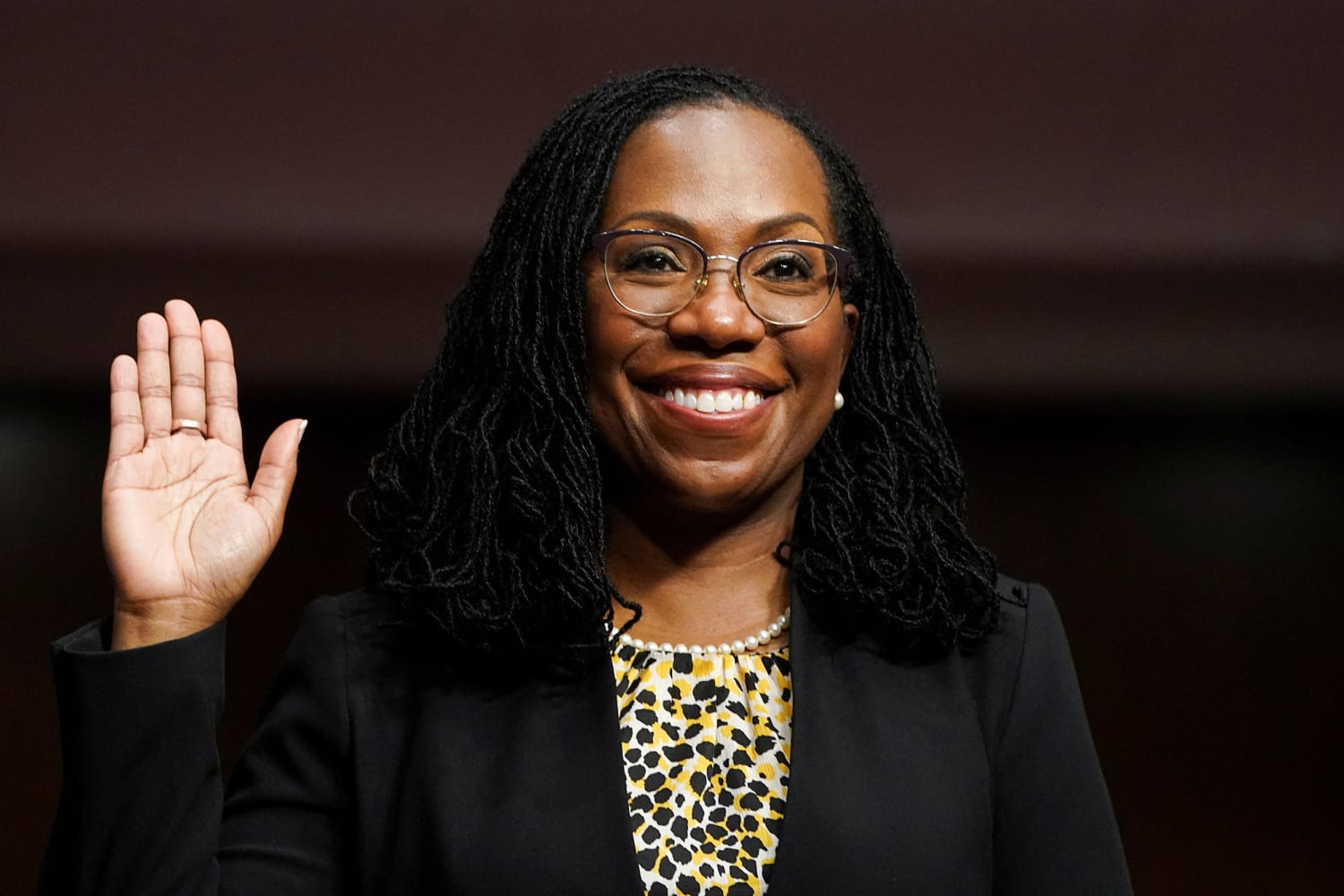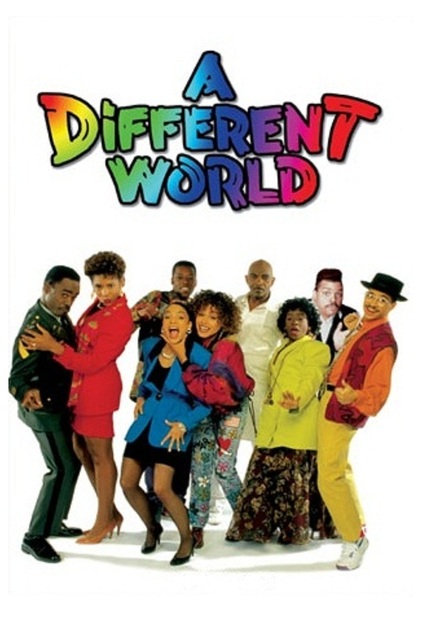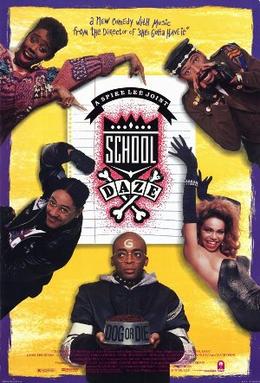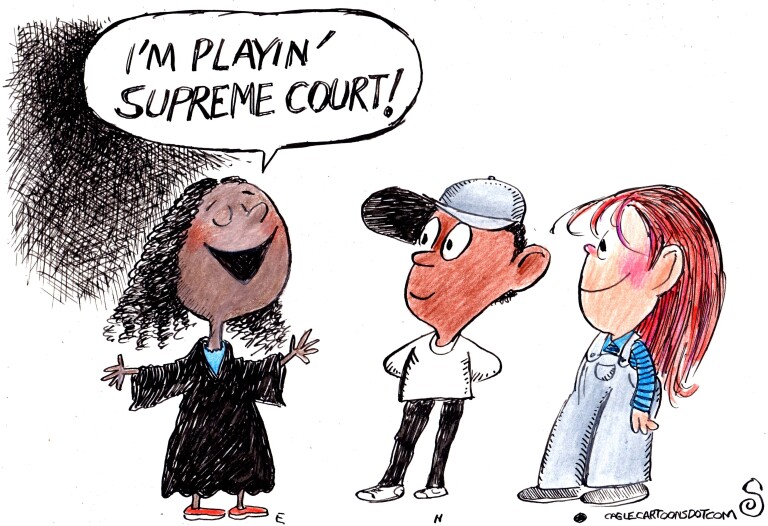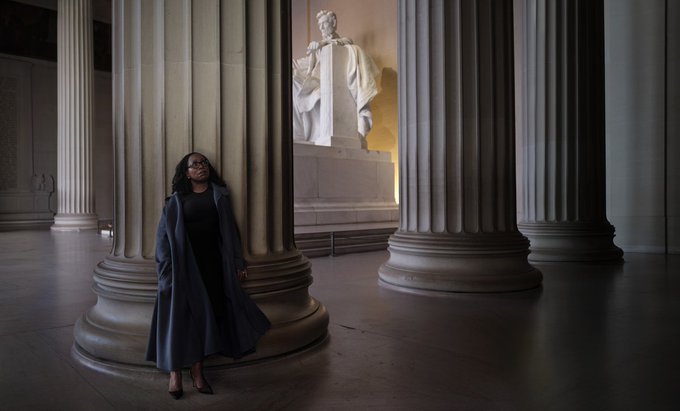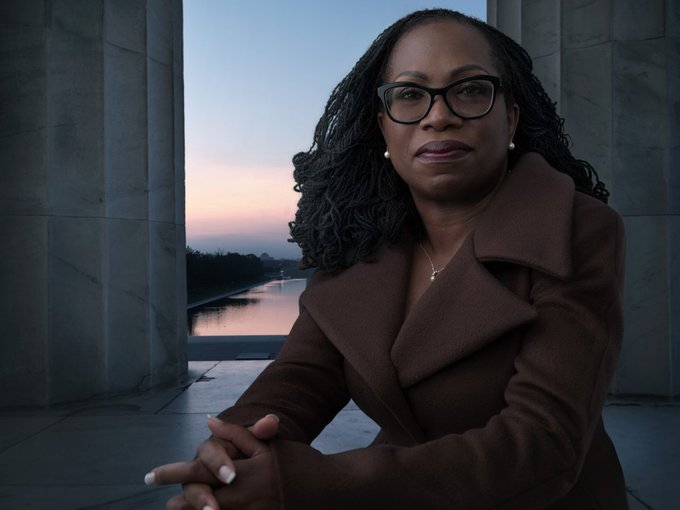Profile of nominee: Ketanji Brown Jackson
By
Amy Ho
we
on Feb 1, 2022

Even before taking office, President Joe Biden pledged to reshape the federal judiciary. In a December 2020 letter, during his presidential transition, he
asked Democratic senators to recommend public defenders and civil rights lawyers, who have generally been underrepresented on the federal bench, for judgeships. If the president nominates Judge Ketanji Brown Jackson, who currently sits on the U.S. Court of Appeals for the District of Columbia Circuit, to fill the vacancy left by the retirement of Justice Stephen Breyer, he will take his mission to diversify professional representation to the next level, putting a former federal public defender on the highest court in the land.
If nominated and confirmed, the 51-year-old Jackson would be the first Black woman on the court and also one of the youngest justices – second only to Justice Amy Coney Barrett, who celebrated her 50th birthday on Friday. She would bring a wide range of experiences not only as a public defender but also a federal district judge and a member of the U.S. Sentencing Commission. Jackson has earned high praise from the justice she would replace if nominated: When she was
under consideration for her previous job as a federal trial court judge, Breyer described her as “brilliant,” a “mix of common sense” and “thoughtfulness.” And she might enjoy an edge over other candidates because of the prospect that she would have a relatively smooth path to confirmation: She was confirmed to an appellate judgeship less than a year ago with support from three Republican senators, and she is a relative by marriage of former House Speaker Paul Ryan, who ran for vice president on the Republican ticket in 2012.
Early life and career
A native Washingtonian, Jackson moved to Florida as a young child with her parents, graduates of historically Black colleges and universities who worked as public schoolteachers. Her father then went to law school, eventually becoming the chief attorney for the Miami-Dade County School Board. Her mother became an administrator and served as the principal at a public magnet school for 14 years.
Jackson attended Miami Palmetto High School, a public school whose other notable alumni include, according to the Miami Herald, Amazon founder Jeff Bezos and Vivek Murthy, the current U.S. surgeon general. While there, she was a stand-out debater and served as student body president.
She went on to Harvard College, from which she graduated magna cum laude in 1992, and Harvard Law School, graduating cum laude in 1996. She spent the year between college and law school as a reporter and researcher at Time magazine in New York.
In the 17 years following her graduation from law school, Jackson held a variety of legal jobs. She attained three federal clerkships, worked at four elite law firms, and served two stints with the Sentencing Commission. While much of that experience is typical for a Supreme Court short-lister, one line on Jackson’s resume is not: her mid-career decision to spend two years as a public defender. In fact, the
last justice with significant experience representing criminal defendants was Justice Thurgood Marshall, who retired in 1991.
From 1996 to 1997, Jackson served as a clerk to U.S District Judge Patti Saris, a Massachusetts judge appointed by President Bill Clinton. She followed that clerkship with a second one, for Judge Bruce Selya, appointed to the U.S. Court of Appeals for the 1st Circuit by President Ronald Reagan, from 1997 to 1998.
Jackson then snagged a highly sought-after spot as an associate at Miller Cassidy Larroca & Lewin, a Washington litigation boutique that later merged with Baker Botts, a Texas-based firm. Other prominent alumni of the firm include Seth Waxman, who served as the solicitor general in the Clinton administration, former deputy attorney general Jamie Gorelick, and Barrett, who arrived at the firm, fresh off a clerkship with Justice Antonin Scalia, shortly after Jackson left.
Jackson left Miller Cassidy after a year for a third clerkship, this time at the Supreme Court as a clerk for Breyer. During the 1999-2000 term, the court was (much as it is now) mired in the culture wars, but often with different results. In
Stenberg v. Carhart, for example, the court – in an opinion by Breyer – struck down a Nebraska law that banned so-called “partial birth” abortions, while in
Santa Fe Independent School District v. Doe the court ruled that a school district’s policy of allowing student-led and student-initiated prayer at football games violates the Constitution’s establishment clause. But in
Boy Scouts of America v. Dale, the court agreed with the Scouts that New Jersey could not force the group to accept a gay man as a scoutmaster.
When her clerkship ended, Jackson became an associate in the Boston office of a large law firm, Goodwin Procter. In 2001, in
McGuire v. Reilly, she was one of the lawyers on a “friend of the court” brief supporting a Massachusetts law that created a floating “buffer zone” around pedestrians and cars approaching abortion clinics. Jackson’s clients included the Women’s Bar Association of Massachusetts, the League of Women Voters, the Abortion Access Project of Massachusetts, and NARAL Pro-Choice America. The U.S. Court of Appeals for the 1st Circuit allowed the law to take effect, reasoning that the state legislature was “making every effort to restrict as little speech as possible while combating the deleterious secondary effects of anti-abortion protests.”
Jackson left Goodwin Procter in 2002 to become an associate at the firm then known as the Feinberg Group, now known as Feinberg Rozen. In a questionnaire for her 2021 confirmation to the D.C. Circuit, Jackson wrote that she worked on mediations and arbitrations while at the Feinberg Group but did not appear in court.
Jackson spent a year at the Feinberg Group before going to work as a staffer at the U.S. Sentencing Commission, an independent federal agency within the judiciary created by Congress in response to “widespread disparity in federal sentencing.” She spent two years there as assistant special counsel.
In 2005, Jackson became an assistant federal public defender in Washington, D.C. At her 2021 confirmation hearing, Jackson drew “a direct line” between her work as a public defender and her later work as a trial judge. She told senators that, during her time as a public defender, she was “struck” by how little her clients understood about the legal process, despite the obviously serious implications of criminal proceedings for their lives. As a result, Jackson said, as a trial judge she took “extra care” to make sure that defendants were aware of what was happening to them and why. “I think that’s really important for our entire justice system because it’s only if people understand what they’ve done, why it’s wrong, and what will happen to them if they do it again that they can really start to rehabilitate,” she emphasized. As a public defender, Jackson argued in the D.C. Circuit, including before some of the judges who would later become her colleagues.
Jackson also has a family member who was a defendant in the criminal justice system. As Ann Marimow and Aaron Davis
reported for The Washington Post, while Jackson was working as a public defender she received a request for help from her distant uncle, Thomas Brown, who was serving a life sentence on federal drug charges. Jackson referred Brown to a Washington law firm, Wilmer Hale, which filed a clemency petition on Brown’s behalf. In 2016, President Barack Obama commuted Brown’s sentence, leading to his release at age 78 after over 25 years in prison.
In 2007, Jackson returned to private practice one last time. She became “of counsel” – a designation for lawyers who are neither associates nor partners – in the Washington office of Morrison & Foerster, a large San Francisco-based law firm. For three years, Jackson was part of the firm’s appellate litigation group, working on cases in the Supreme Court and in state and federal appeals courts around the country.
In 2010, she returned to the Sentencing Commission after Obama nominated her to serve as vice chair of the commission. The Senate confirmed her for the position by unanimous consent. During her tenure, the commission sought to alleviate harsh sentences for drug crimes by enacting several amendments to the Federal Sentencing Guidelines, including allowing some people with crack-cocaine convictions to seek lighter sentences.
A federal district judgeship
In September 2012, Obama nominated Jackson to serve as a U.S. district judge in Washington, D.C. Although the Senate held hearings in December, it did not act on her nomination before the 112th Congress adjourned at the beginning of January. Obama nominated Jackson again on Jan. 4, 2013, and the Senate confirmed her by a voice vote in March.
During her seven years as a district judge, Jackson issued several high-profile rulings on topics ranging from federal environmental law to the Americans with Disabilities Act. But none had a higher profile than her decision in
Committee on the Judiciary v. McGahn, in which she ruled that Don McGahn, the former White House counsel to President Donald Trump, was required to testify before the House Judiciary Committee as part of its investigation into Russia’s interference in the 2016 election and Trump’s possible obstruction of justice, even after Trump had directed him not to do so. In
a 118-page opinion, Jackson rejected the contention by Trump’s Department of Justice that federal courts lack the power to review disputes between the executive branch and Congress over subpoenas, as well as its argument that the president has the sole authority to decide whether he and his senior aides will comply with subpoenas to testify about possible wrongdoing in his administration. She stressed that “the primary takeaway from the past 250 years of recorded American history is that Presidents are not kings.” White House employees, she continued, “work for the People of the United States,” and “take an oath to protect and defend the Constitution of the United States”; the president cannot block them from appearing to testify. McGahn eventually testified before the committee in June 2021, after the DOJ (now under the Biden administration) and the committee reached an agreement for him to do so.
In April 2018,
Jackson ruled against the Trump administration in a lawsuit brought by federal employee unions challenging three of the president’s executive orders on the collective bargaining rights of federal workers. The unions argued that the orders exceeded the president’s powers and conflicted with both federal labor laws and the employees’ constitutional rights.
In a 62-page opinion, Jackson ruled for the challengers. She agreed with them both that she had the power to review their claims and that Trump’s “directives undermine federal employees’ right to bargain collectively as protected by” federal law.
The D.C. Circuit reversed Jackson’s holding that she had the power to review the union’s claims. The unions, Judge Thomas Griffith reasoned, must first pursue their challenge through an administrative agency process and then, if necessary, in the courts of appeals.
Jackson ruled for the Trump administration in
Center for Biological Diversity v. McAleenan, a challenge to a decision by the Department of Homeland Security to waive over two dozen laws in connection with the construction of a 20-mile segment in New Mexico of the border wall with Mexico. The challenger, an environmental group, argued that the waiver exceeded the agency’s power and would cause environmental damage.
Jackson dismissed the group’s complaint, ruling that federal courts do not have the power to consider the group’s non-constitutional claims. Moreover, she continued, the group had not alleged the kind of facts that would allow their constitutional claims to move forward. The group
asked the Supreme Court to take up their case, but the justices denied its petition for review in June 2020.
In 2015, Jackson
ruled that prison employees and contractors in the District of Columbia had discriminated against William Pierce, a deaf man serving a 51-day sentence for assault, when they never tried to determine what accommodations he would need to communicate with others and “largely ignored his repeated requests for an interpreter.” Instead, she wrote, the employees and contractors “figuratively shrugged and effectively sat on their hands with respect to this plainly hearing-disabled person in their custody, presumably content to rely on their own uninformed beliefs about how best to handle him and certainly failing to engage in any meaningful assessment of his needs.” Jackson did not resolve, however, Pierce’s claim that prison officials had retaliated against him for his requests for an interpreter by placing him in solitary confinement, explaining that Pierce and the city disagreed on the underlying facts of the dispute.
A jury later awarded Pierce $70,000 in damages, and the city did not appeal.
In October 2018, Jackson issued an important ruling in favor of the U.S. territory of Guam in a dispute with the U.S. Navy. The Navy had created a landfill on the island that was used for the disposal of munitions and chemicals. Because pollution from the landfill was contaminating a nearby river, the government of Guam entered an agreement with the Environmental Protection Agency to shut it down and clean it up. The clean-up was expensive, so Guam went to federal court, seeking help from the Navy to recover some of the costs – which could reach as much as $160 million.
The federal government asked Jackson to dismiss the case, arguing that Guam could only seek money from the government under one provision of the Comprehensive Environmental Response, Compensation & Liability Act, and it was too late to do so.
Jackson rejected the federal government’s argument, allowing the case to go forward.
On appeal,
the D.C. Circuit threw the case out, while acknowledging that such a result was “harsh.” Guam went to the Supreme Court, which granted review and in May 2021
unanimously reversed that ruling, reinstating the island’s lawsuit.
A promotion to the country’s “second-highest court”
The D.C. Circuit is often dubbed the “second-highest court in the land” because of the many high-profile cases that it hears and because it has served as a launching pad for several Supreme Court justices. Among the current justices, Chief Justice John Roberts and Justices Clarence Thomas and Brett Kavanaugh all served on the D.C. Circuit before being nominated to the Supreme Court, as did the late Justices Antonin Scalia and Ruth Bader Ginsburg. The work is not entirely glamorous, however: The court’s docket also includes a steady diet of lower-profile (although still important) administrative-law cases, including appeals of orders issued by the Federal Energy Regulatory Commission.
After Biden nominated Merrick Garland, then a judge on the D.C. Circuit, to be the attorney general, Jackson was quickly regarded as a leading contender to fill the vacancy left by Garland’s departure. And indeed, although she was not officially nominated until April 19, 2021, her responses to a questionnaire submitted before her confirmation indicated that White House Counsel Dana Remus contacted her on Jan. 26, 2021, about a possible nomination to the D.C. Circuit, and she met with the president in late February.
Jackson’s nomination for the D.C. Circuit enjoyed support from lawyers of all ideological stripes. Judge Thomas Griffith, a George W. Bush nominee who retired in 2020,
wrote in a letter that although Jackson and he “have sometimes differed on the best outcome of a case,” he had “always respected her careful approach and agreeable manner.” And
a letter signed by 23 lawyers who clerked at the Supreme Court at the same time as Jackson (for both liberal and conservative justices) emphasized the attorneys’ “great respect for her legal abilities, her work ethic, and her ability to work with colleagues of both like and differing views.” The letter also noted that Jackson “treated everyone who worked at the Court with respect and kindness.”
At her confirmation hearing in April 2021, Jackson faced questions about her service from 2010 to 2011 on the board of Montrose Christian School, a Maryland private school that has since closed. Sen. Josh Hawley, R-Mo., noted that the school’s statement of faith indicated that “[w]e should speak on behalf of the unborn and contend for the sanctity of all human life from conception to natural death” and that marriage should be limited to a man and a woman. Hawley noted that Barrett had been “attacked” for serving on the board of a Christian school with similar positions, and he asked Jackson whether, based on her service at Montrose Christian, she believed in “the principle, and the constitutional right, of religious liberty.”
“I do believe in religious liberty,” Jackson told Hawley. It is, she said, a “foundational tenet of our entire government.” But Jackson distanced herself from the Montrose Christian statement of faith, telling Hawley that she had “served on many boards” and did not “necessarily agree with all of the statements … that those boards might have in their materials.” And in this case, she added, she “was not aware of” the statement of beliefs.
Jackson was confirmed on June 14, 2021, by a vote of 53-44. Three Republicans – Susan Collins of Maine, Lindsey Graham of South Carolina, and Lisa Murkowski of Alaska – joined all Democrats in voting for her.
In her short tenure on the D.C. Circuit, Jackson has already been involved in one high-profile case: Trump’s efforts to block the release of documents related to the Jan. 6, 2021, riot at the U.S. Capitol. The special House of Representatives committee investigating the riot asked the National Archives to turn over presidential records relating to the events of Jan. 6 and Trump’s claims of election fraud in the 2020 presidential election.
When the archivist notified Trump that he would turn over records, Trump claimed executive privilege over some of the documents, including diaries, schedules, and visitor and call logs. But Biden countered that the documents should not be shielded by executive privilege, prompting Trump to go to court. A federal district judge in Washington rejected Trump’s request to block the disclosure of the documents, and the D.C. Circuit,
in an opinion by Judge Patricia Millett that Jackson joined, upheld that ruling. Trump then went to the Supreme Court,
which on Jan. 19 turned down Trump’s request to stop the release of the documents. Only Justice Clarence Thomas indicated that he disagreed with the court’s decision.
Personal life
Jackson met her husband, a surgeon at MedStar Georgetown University Hospital, while both were students at Harvard. The couple married in 1996, and they have two daughters – one a senior in high school and the other in college.
Since 2019, Jackson has served on
the board of trustees at Georgetown Day School, a prestigious Washington private school that her daughter attends. She has also served on
Harvard’s board of overseers since 2016. In 2016, Jackson
recused herself from a case challenging the U.S. Department of Education’s sexual-assault guidelines for colleges and universities; in her
Senate questionnaire for her D.C. Circuit confirmation hearing, she explained that at the time she was “serving on the board of a university that was evaluating its own potential response to those guidelines” and therefore her impartiality might be questioned. Jackson’s service on Harvard’s board raises the prospect that, if nominated and confirmed, she would also recuse herself from
the challenge to Harvard’s race-conscious admissions policy, in which the court is likely to hear argument in the fall.
Jackson was introduced at her 2012 confirmation hearing by Paul Ryan, then a member of the House of Representatives and Mitt Romney’s running mate in the 2012 presidential campaign. Ryan is a relative of Jackson by marriage: His wife’s sister, Dana, is married to William Jackson, the twin brother of Jackson’s husband, Patrick Jackson. Ryan told the Senate Judiciary Committee that, although “our politics may differ,” his “praise for Ketanji’s intellect, for her character, for her integrity, it is unequivocal.”
During Jackson’s 2012 confirmation hearing, Sen. Mike Lee, R-Utah, asked her whether, as a district court judge, she planned “to follow Justice Breyer’s very awesome style of questioning [at] oral argument in your court.” After the laughter subsided, Jackson responded that she did not think anyone could match Breyer’s style, and she didn’t know whether she would “even attempt to try.” Although Breyer’s unique approach to oral arguments may not have been well suited to the district court, if nominated to succeed him on the Supreme Court Jackson could decide whether to imitate him there – or, is as more likely, bring her own style, reflecting her own personality and experiences.
This article was originally published at Howe on the Court.
Posted in
Retirement of Stephen Breyer,
Profiles of Potential Nominees to Replace Justice Breyer
Recommended Citation: Amy Howe,
Profile of a potential nominee: Ketanji Brown Jackson, SCOTUSblog (Feb. 1, 2022, 10:30 AM),
https://www.scotusblog.com/2022/02/profile-of-a-potential-nominee-ketanji-brown-jackson/
Profile of a potential nominee: Ketanji Brown Jackson - SCOTUSblog





